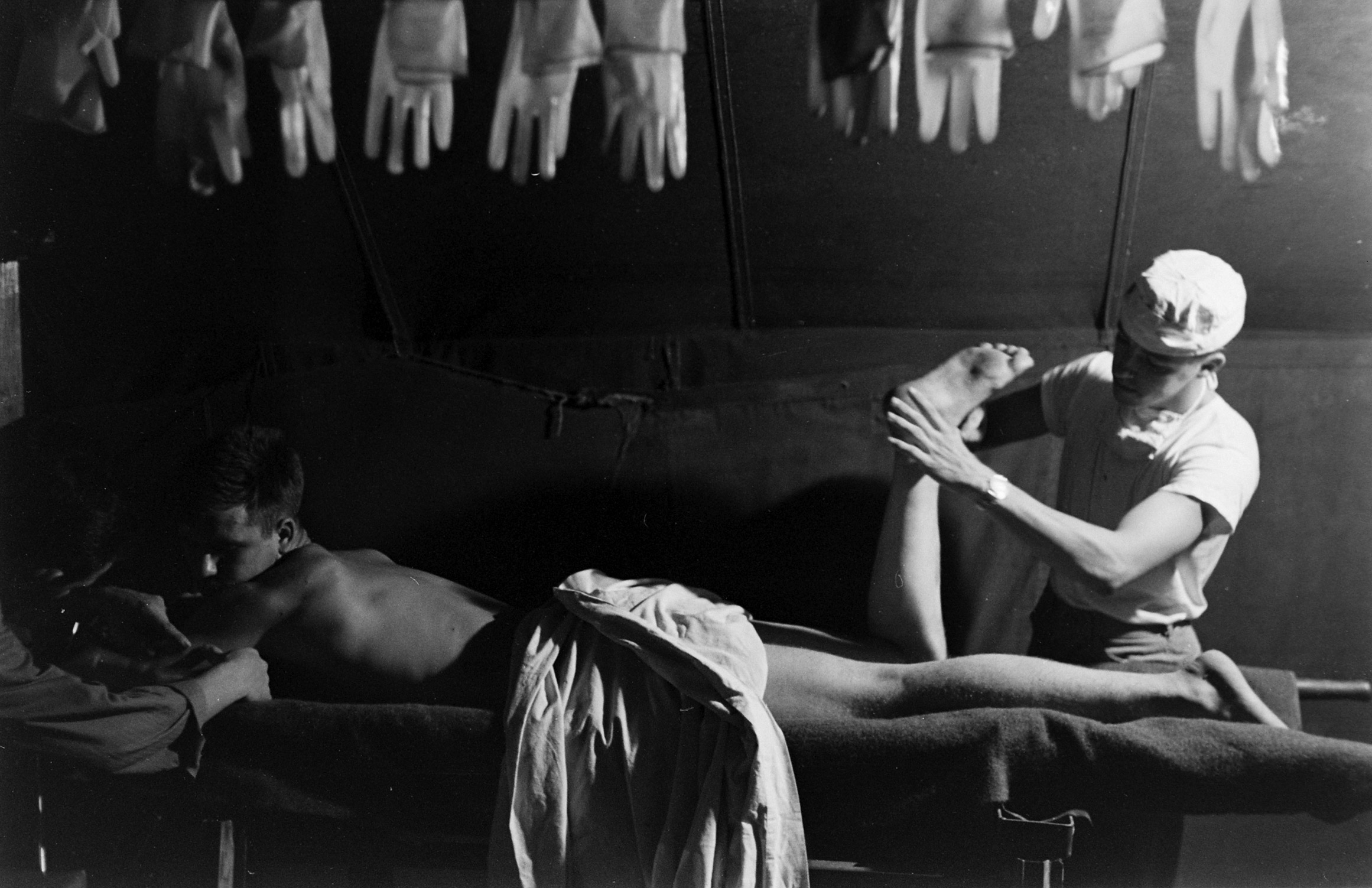
In the hours before warring nations signed the armistice that would end the Korean War, the doctors and Marines at the Easy Med hospital were keeping vigil over a wounded comrade. The medics had seen countless Marines die under their care, but this one was different. He would be the last. LIFE described the somber mood:
The medics at Easy Med, the Marine front-line hospital just 15 miles from Panmunjom, had seen scores of wounded men die in their months of war. Under the pressure of work they had been forced to accept each death philosophically and to move efficiently, even impersonally, on to the next man. But on the last night of fighting, when every soldier at the front was praying that his number would not come up now and that he would not be the last man to die, the corpsmen at Easy Med were working over a 22-year-old corporal whom fate had already touched.
The unidentified Marine had been wounded by a Chinese mortar shell and carried through the darkness to the ambulance that took him to Easy Med. Upon his arrival, medics quickly got to work, taking every measure imaginable to keep him alive. They gave him 20 pints of blood and an injection of albumin when his body went into shock. Three doctors spent five hours bent over his hospital bed, draining his chest and removing a blood clot from his wounded right leg.
His comrades, feeling helpless, cried over his bed and rubbed alcohol on his hands in an attempt to lower his fever, until finally, “the corpsmen stepped back to watch, for there was nothing more they could do but pray.”
At 3:20 in the morning, a mere seven hours before the signing of the armistice, the Marine took his final breath. “A white Navy blanket was pulled over the corporal’s face,” LIFE’s editors wrote, “and the last of Easy Med’s patients to die lay alone under a solitary light bulb.”
Liz Ronk, who edited this gallery, is the Photo Editor for LIFE.com. Follow her on Twitter @lizabethronk.

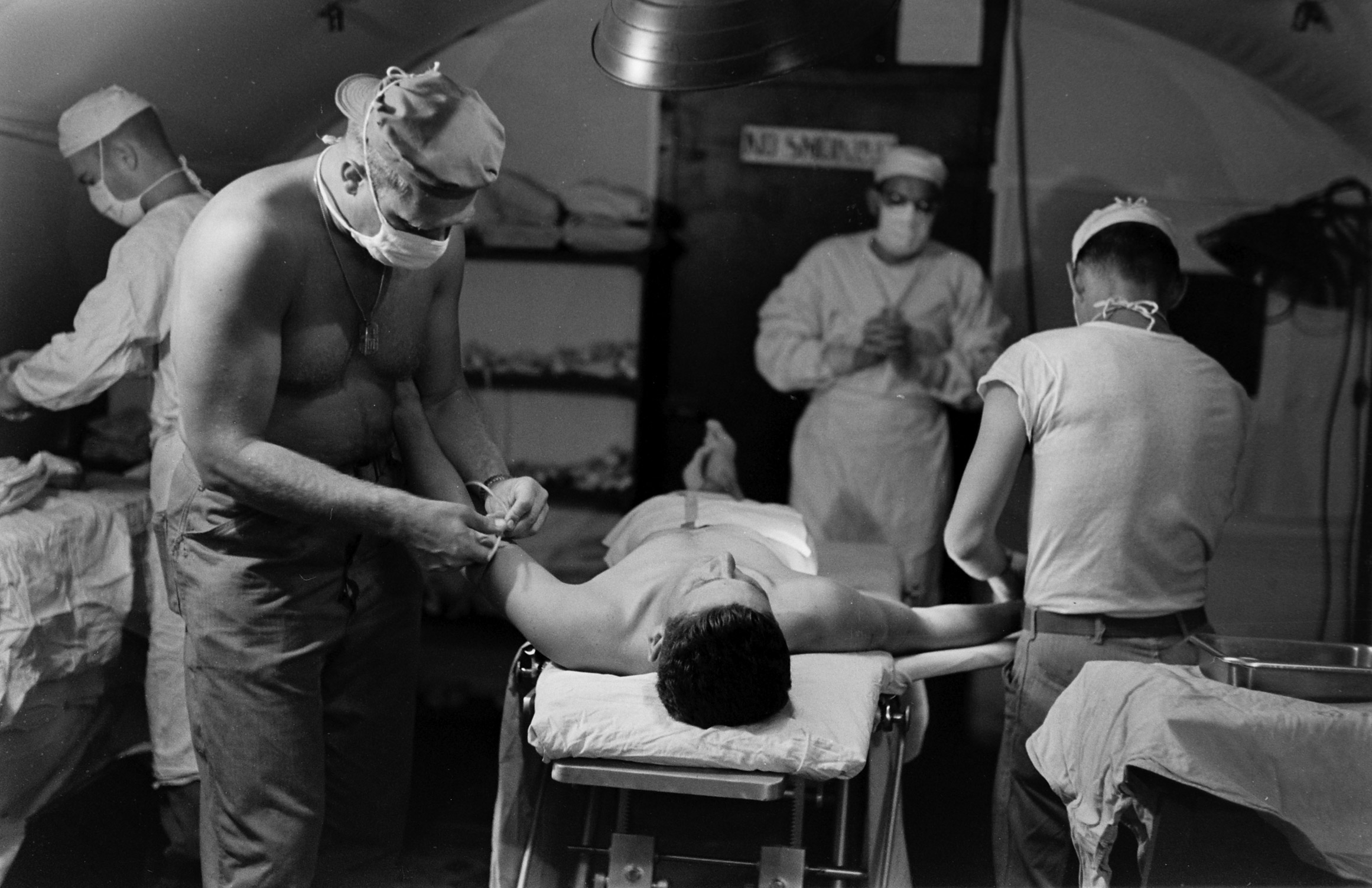
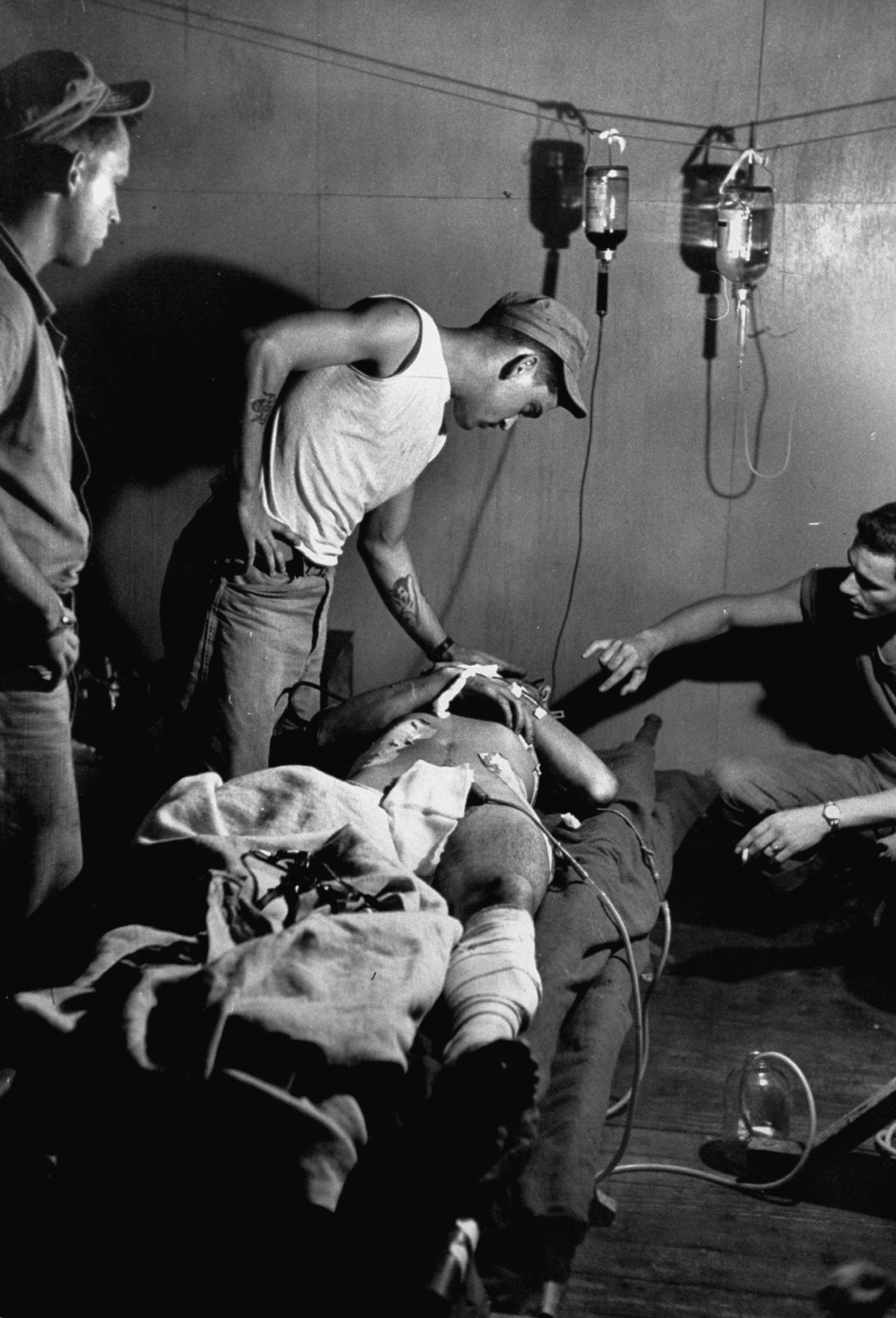
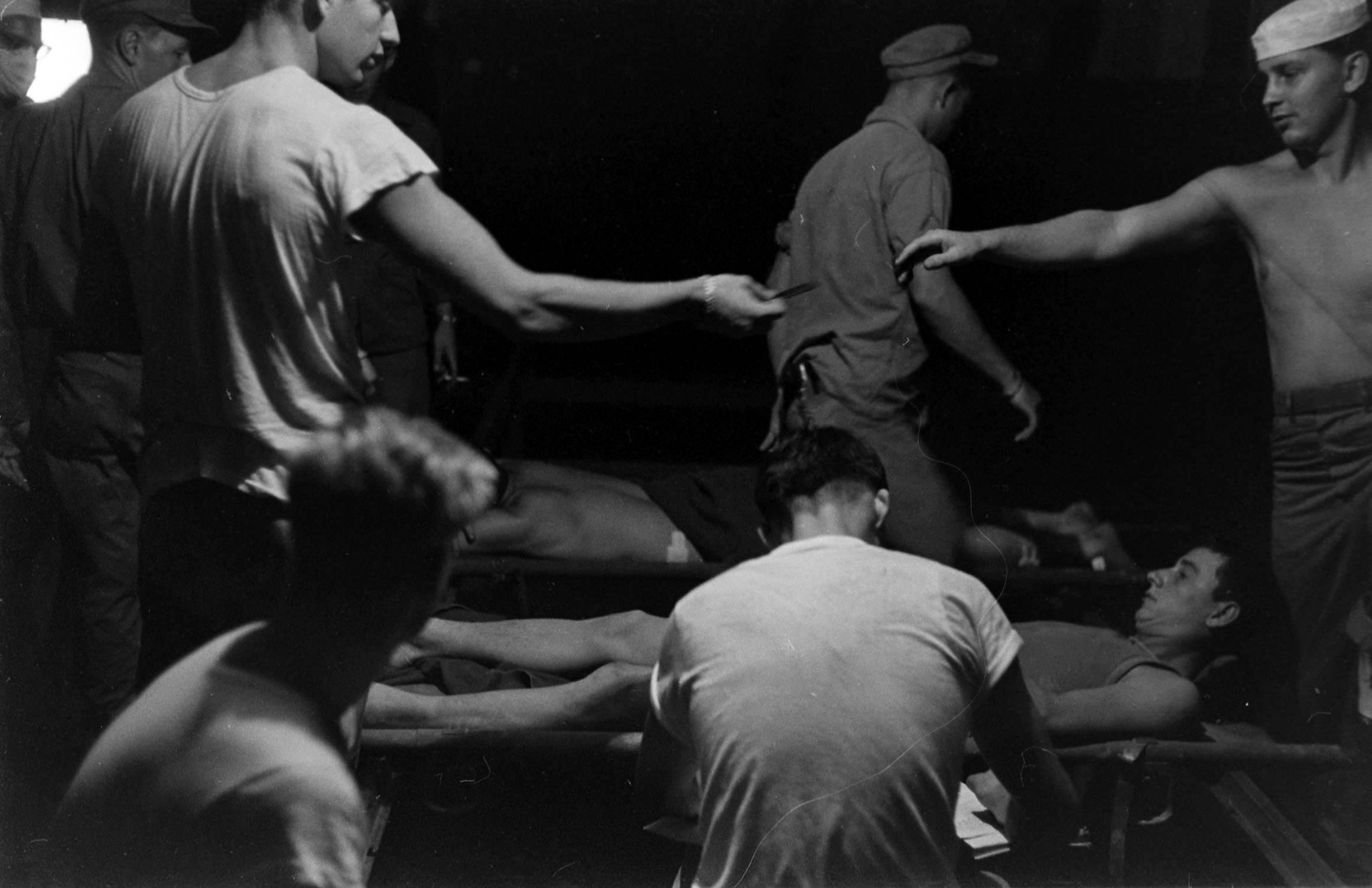
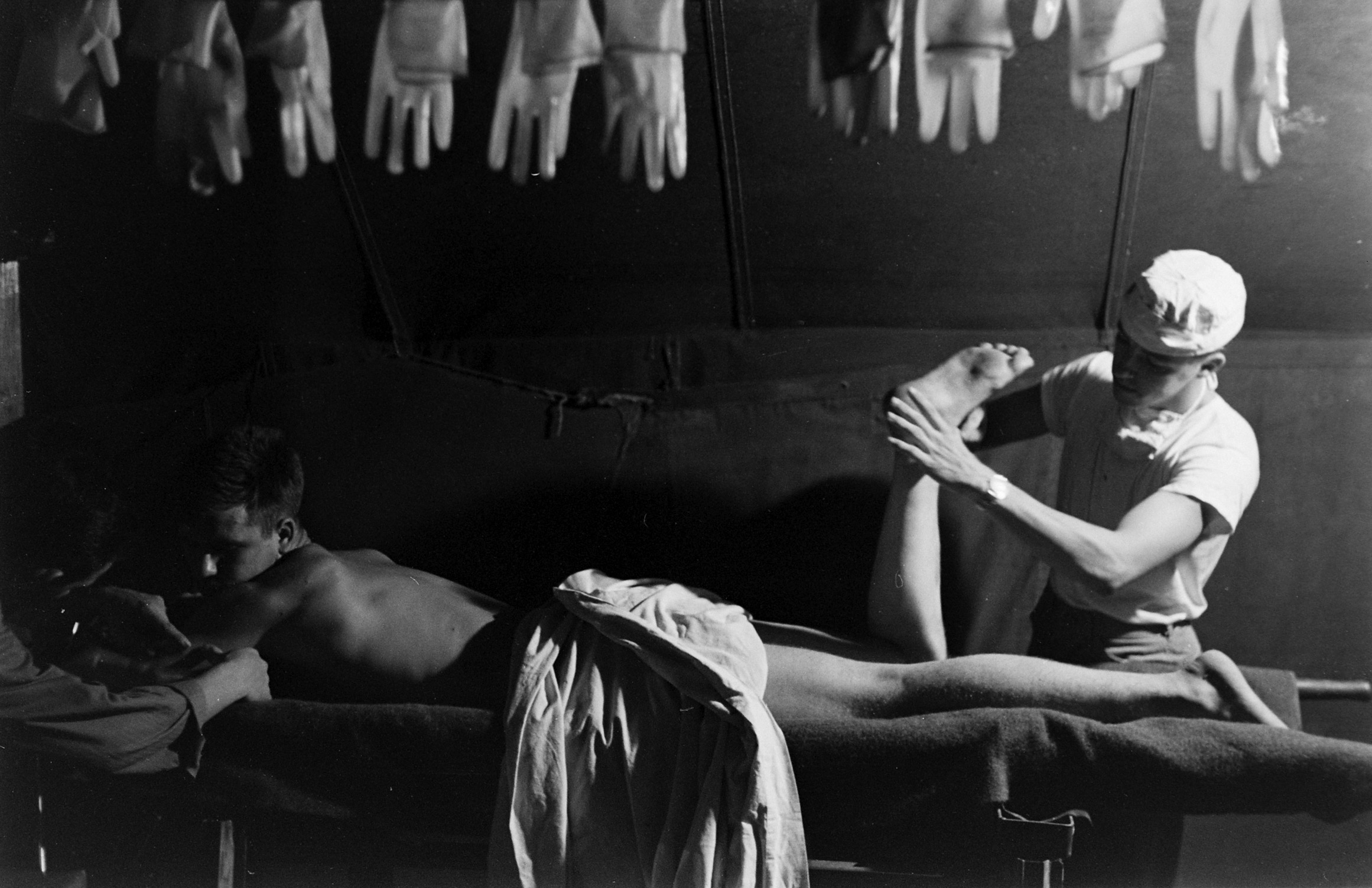
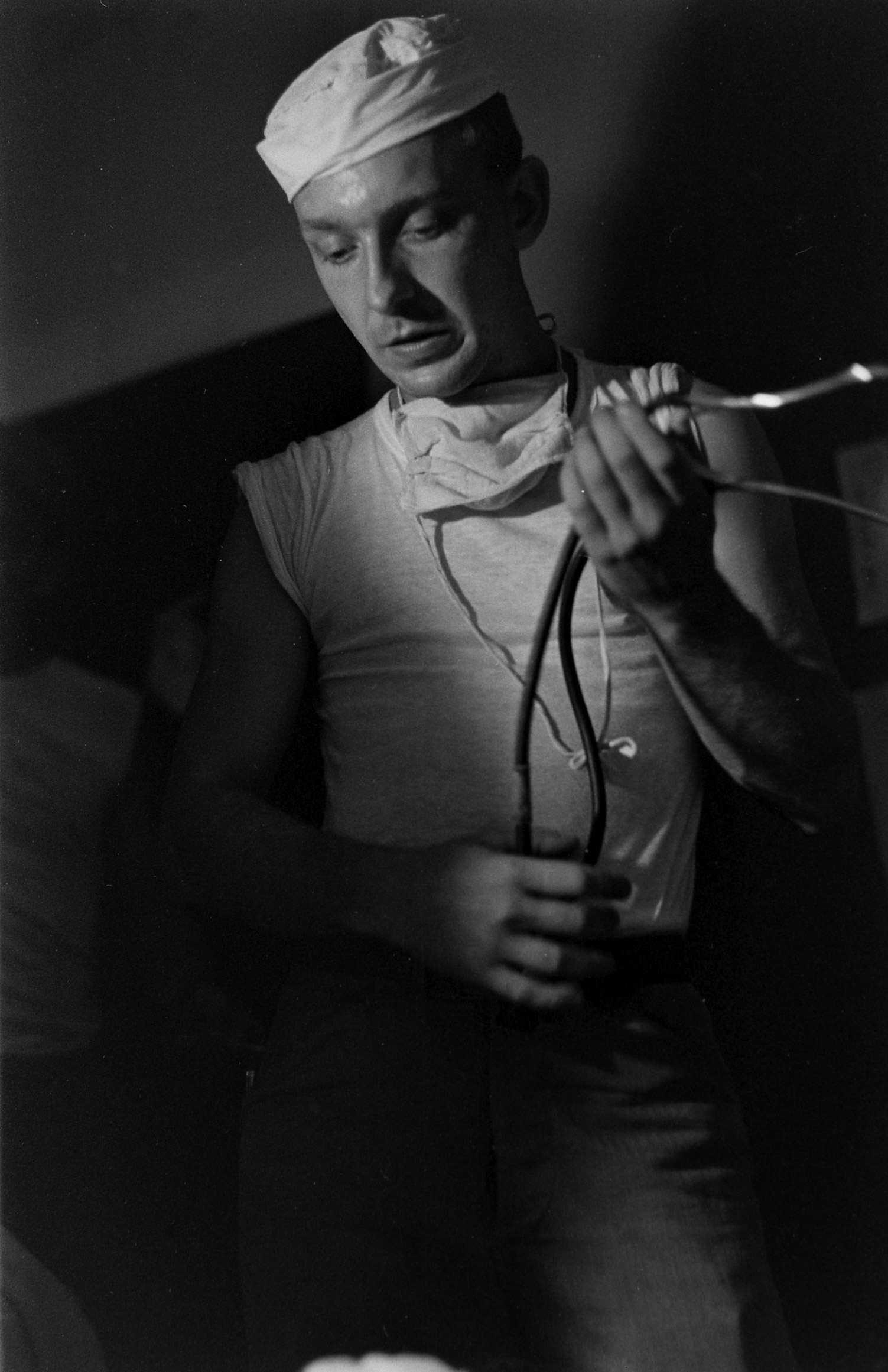
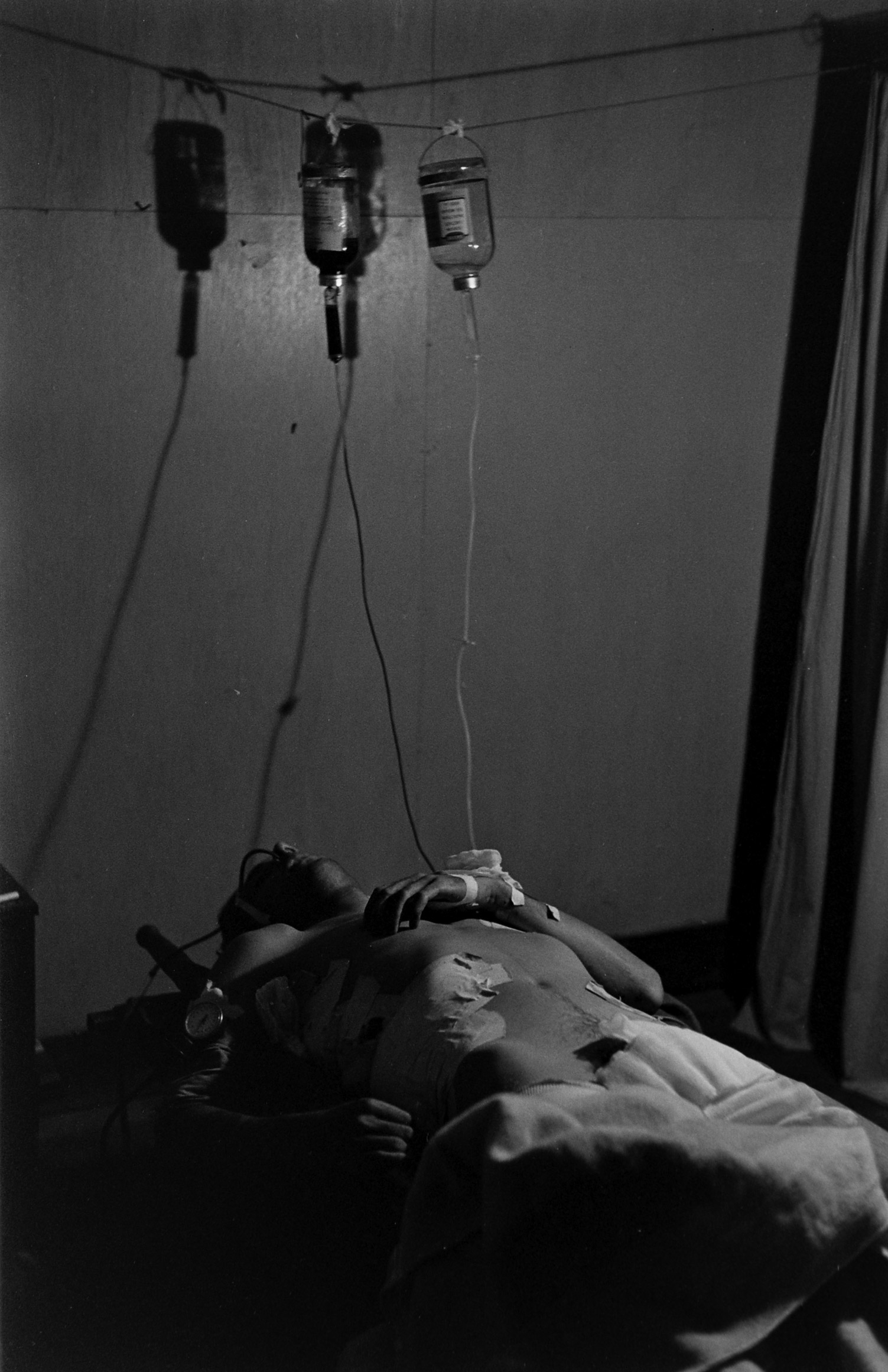

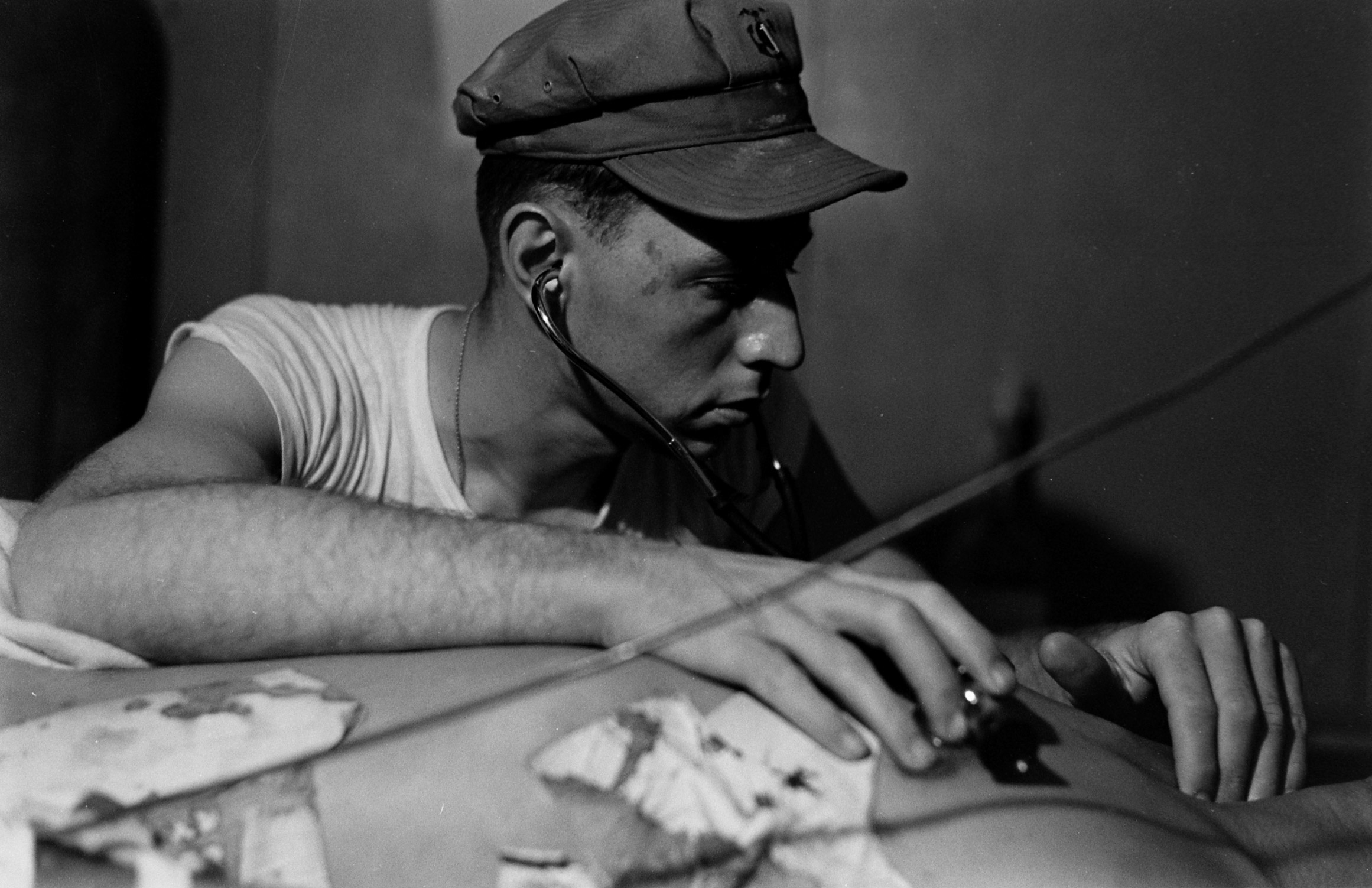
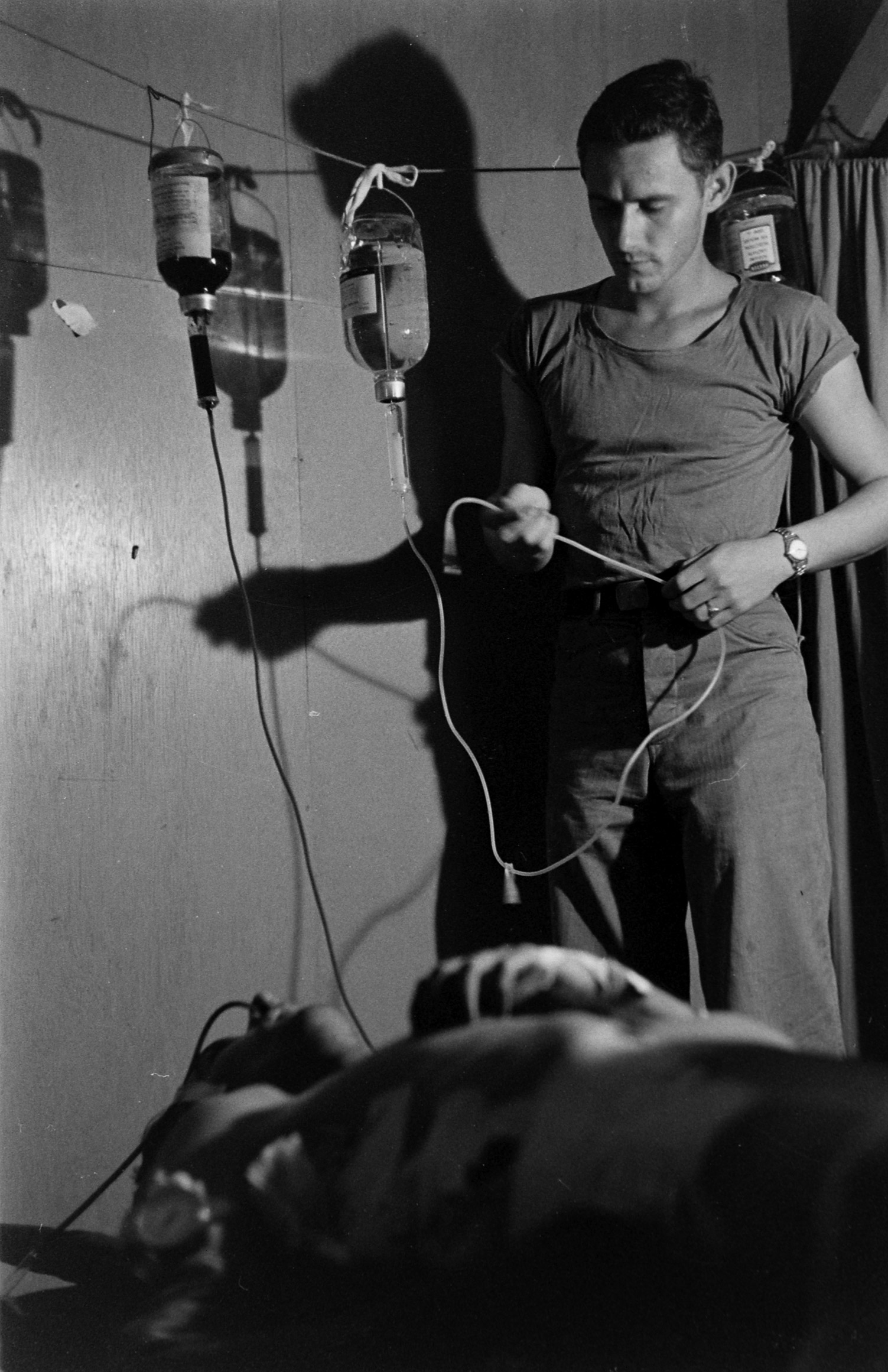
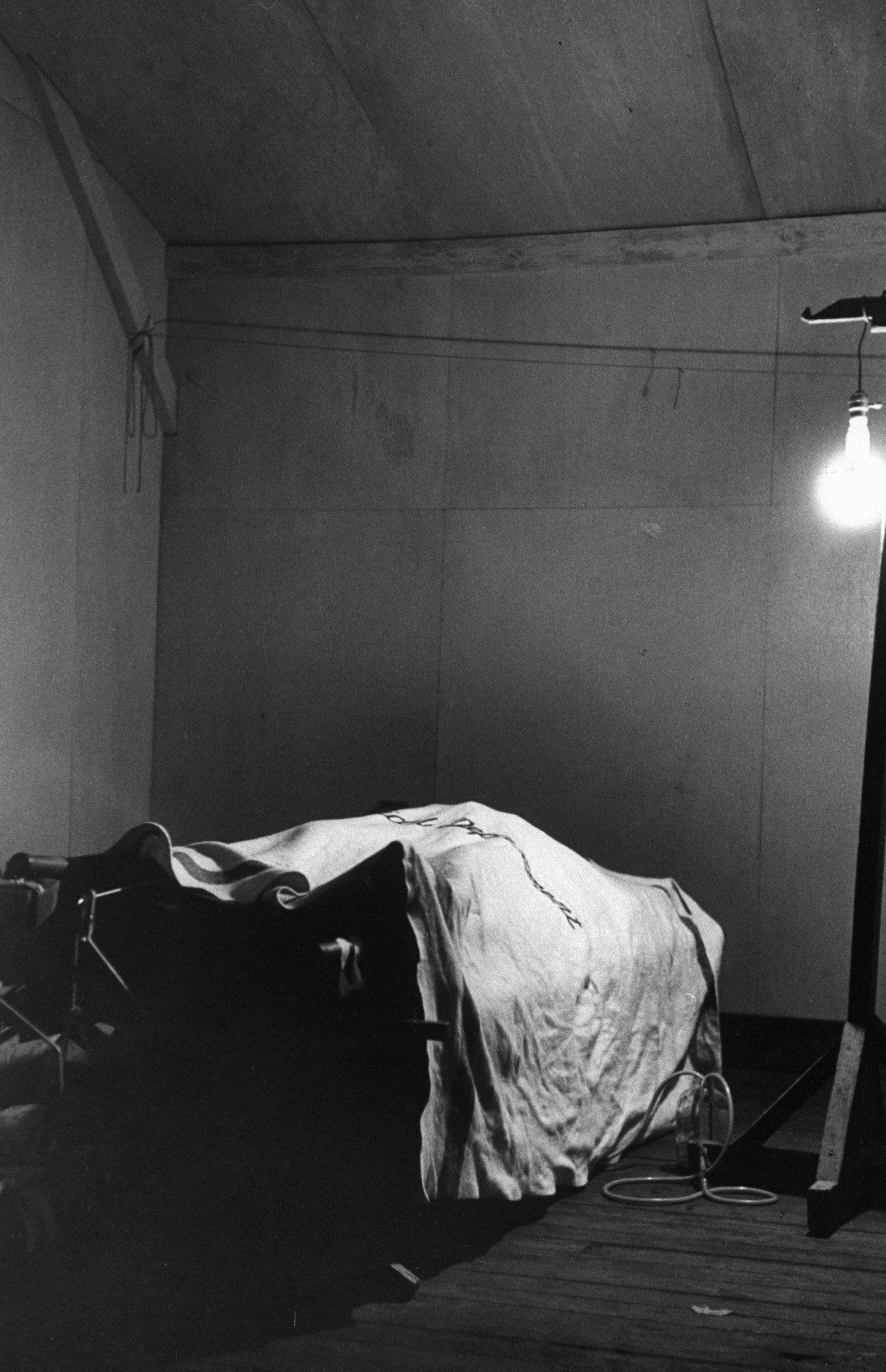
More Must-Reads From TIME
- The 100 Most Influential People of 2024
- The Revolution of Yulia Navalnaya
- 6 Compliments That Land Every Time
- What's the Deal With the Bitcoin Halving?
- If You're Dating Right Now , You're Brave: Column
- The AI That Could Heal a Divided Internet
- Fallout Is a Brilliant Model for the Future of Video Game Adaptations
- Want Weekly Recs on What to Watch, Read, and More? Sign Up for Worth Your Time
Write to Eliza Berman at eliza.berman@time.com